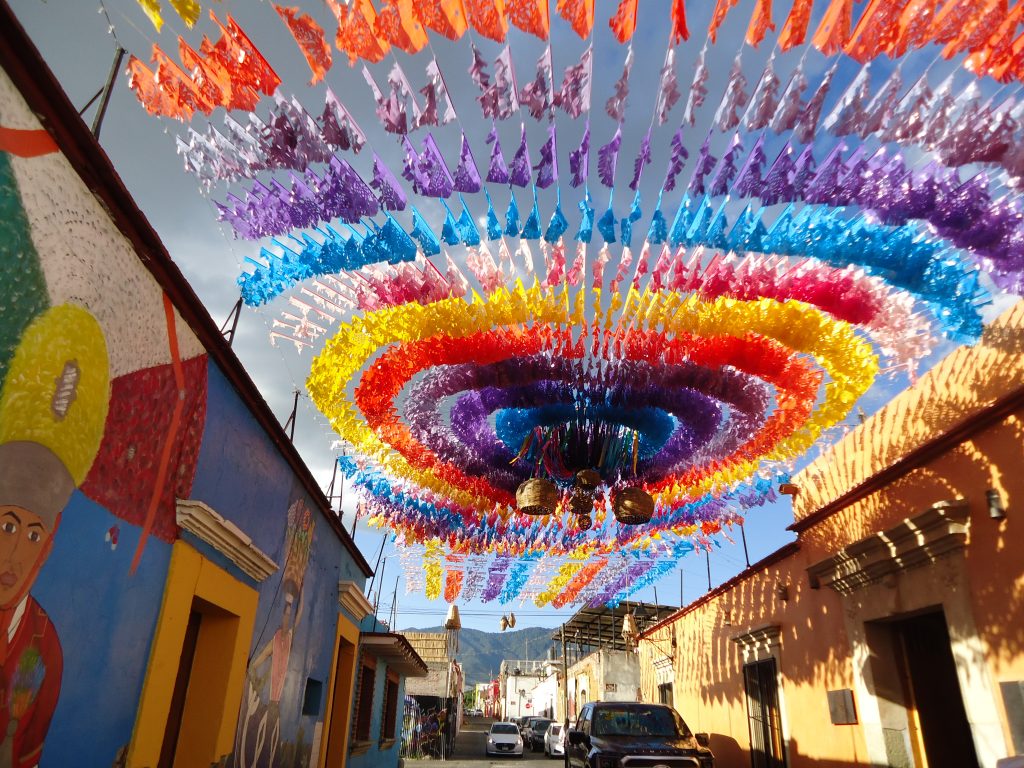One cultural observation I made during my time in Oaxaca, México is the difference in the conception of “time” for Mexicans. In México, people operate on a more relaxed schedule and at a slower pace of life than in the United States. I noticed that people were much more laid-back, relaxed, and less “in a hurry.” On my walk to work, it was not unusual for me to be the fastest walker on the path and overtake several people who were walking more slowly (in a polite way of course). In the U.S., I’ve always felt like I’m an average-paced walker, but I felt especially fast in México. And while I was in such a rush to get to work, I usually ended up arriving 15 minutes earlier than my bosses did, since they did not follow the same rules of punctuality as I did to make a good impression. At my internship, it was normal for people to arrive late to meetings or move meetings with late notice, meaning that I had to learn to keep my schedule open and stay adaptable.
My professors and the program coordinators did a great job helping us become aware of this cultural difference early on. They hosted a training during our first week on the program and helped us get accommodated, which turned out to be necessary as it did come as somewhat of a shock at the beginning. I felt that I had to work to overcome my impatience and my desire to be more efficient and get things done fast so I could move on to the next thing. My professors also did a great job teaching us to be aware of our own cultural biases and advising us not to use any judgemental language when referring to the differences we notice in the pace of life here. We were told to be careful with using the words “more” or “less” because it means we are comparing the way people live in México to the way we live in the United States as if our way of life is the “standard.” This is not the case, as it all depends on perspective, and no culture or cultural practices are “better” than any others. I fully agree that there is no right or wrong way to navigate time and that it all depends on our own cultural biases and the way we have been raised.
Living in México helped me gain an appreciation for a slow-paced lifestyle. I learned to walk slower on my way to work so that I could take in all the sights, smells, and sounds of Mexican urban life. I learned to move slower at work so that I could pay more attention to detail and be more accurate. At home, I enjoyed having the ability to let myself truly relax without being preoccupied with being “productive” in my free time, such as getting ahead in my work or planning out my week. I learned to give myself the time I needed to replenish my energy, and I found that I also ended up having a lot of time to spend with my host family. In México, it is clear that time with friends and family is valued over time being productive, and I believe that this is a healthy practice and can benefit a person in so many different ways. Part of me is sad to return to a productivity-focused culture like the United States, though I know I do thrive in it. I hope to be able to continue the practices I’ve learned in México and remind myself to be more present. I also look forward to using my new understanding of cultural perspectives to effectively engage with individuals from different cultural backgrounds. I am better equipped to understand and appreciate their diverse viewpoints and establish strong relationships with them.

